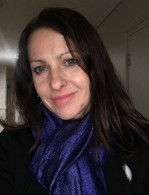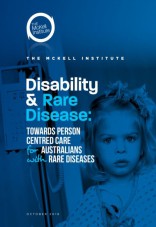Rare Disorders NZ: October update
Rare is everywhere: Meet Carol-Anne
"What I wish for, to make life easier, would be for better funding and understanding of the real cost living with a rare disease has."
Equity for rare: Chief Executive's update
Every day we witness the challenges that affect families living with a rare disorder, often struggling to get the support they need and deserve. As we move into the last part of the year, there is a feeling of real momentum and need for change to ensure an integrated and cohesive healthcare system that can work for everyone. We're part of Patient Voice Aotearoa, who are advocating for a reform of PHARMAC and doubling of the medicines' budget. There are several petitions for rare disease medicine access which are part of the collective call for improved access to innovative medicines. We are working together to demand a system that works for all of us; all lives matter and medicines access cannot be dependent on an equation based solely on the cost and number of people needing it. Read and sign the PVA petition here.
There are at least 350 million people worldwide living with a rare disorder, that’s more than the number of people living in USA! RDNZ is part of the global campaign for all people with rare disorders, and earlier this month I went to Taiwan as an invited speaker for the Asia Pacific Alliance of Rare Disease Organisation (APARDO) Summit 2019. I spoke about the current lack of rare disease policy in New Zealand, despite being a leader on the UN Convention of the Rights of People with Disabilities. It was disappointing to realise how far behind New Zealand is regarding acknowledgement, awareness and action for rare disorders compared to other Asia Pacific countries. I am hopeful this picture can be improved with focused advocacy and a loud collective voice to state exactly what changes are needed so please join our call for action and read the seven strategic priorities below - we need your support to make real change!
This week I was interviewed on TV1 Breakfast, discussing the challenges of accessing medicine in NZ. Within the current system, there’s no way that expensive drugs for small population numbers are ever going to get a fair hearing. There can’t be an equitable system unless there’s an alternative pathway, which is not judged solely on cost - there have to be other factors for consideration.
Nga mihi,
Lisa Foster

Join our call for action: fair healthcare for all
Rare Disorders NZ has identified seven strategic priorities and is leading the call for the development of a New Zealand National Rare Disorder Framework to ensure equitable healthcare for all people living with a rare disorder. We are consulting with the 140 support groups we're connected with, along with the wider rare disease community, to ensure these priorities include all the issues.
Read the strategic priorities on our website and email Kim with your feedback and to add your name to our list of endorsers.
UN recognition for rare disease community
RDNZ congratulates Rare Diseases International for ensuring that the UN Member States adopted a political declaration on universal health coverage (UHC) that includes mention of rare diseases.
“This is the first time people with rare diseases are included in the UHC declaration which is a huge milestone for global advocacy groups,” says RDNZ Chief Executive Lisa Foster.
“There are more than 350 million people living with rare diseases worldwide and UN recognition will ensure this population is not left behind.”
Media release: UN recognition for all people living with a rare disease
Rare Voices Australia: report launched
Rare Voices Australia launched the report, Disability & Rare Disease: Towards Person Centred Care for Australians with Rare Diseases, at Parliament House this month. The report highlights significant unmet need and the need for the health and disability sectors to collaborate to provide person centred care.
RDNZ congratulates Rare Voices Australia for their hard work in campaigning for the best possible care for people living with rare disorders. Read the full report on their website.

Cancer care must include rare diseases
RDNZ welcomes the government's continued commitment to cancer care, but urges the government to ensure that New Zealanders living with genetic and rare disorders are not left out.
Media release: People with rare health conditions need equitable treatment
